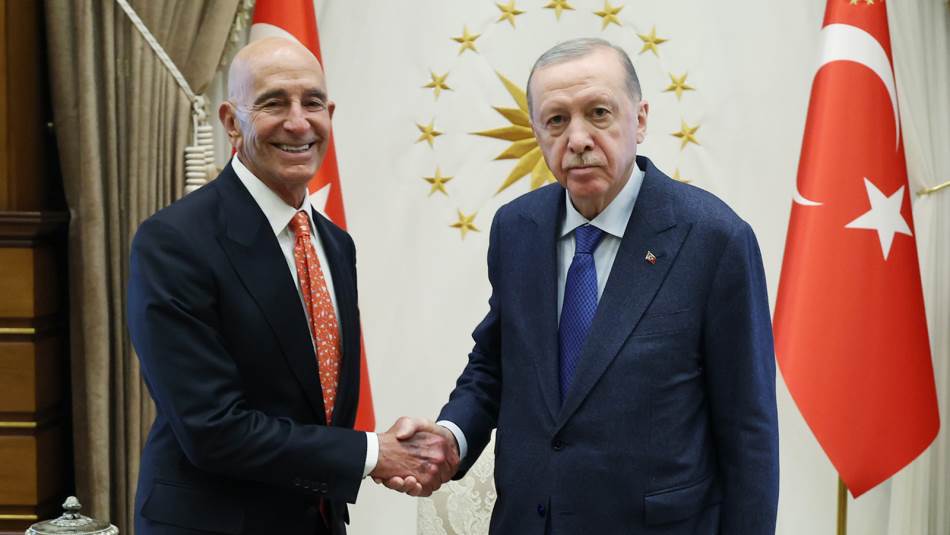The Biden administration is set to appoint Thomas Barrack, the current U.S. ambassador to Turkey and longtime confidant of President Donald Trump, as the new U.S. Special Envoy for Syria, according to diplomatic sources cited by Reuters.
The decision—yet to be officially confirmed by the State Department—comes on the heels of Trump’s landmark announcement in Riyadh last week lifting all U.S. sanctions on Syria. This move has opened a new chapter in American engagement with the war-torn country and marks a shift in U.S. strategy as Syria transitions out of nearly a decade and a half of civil war following the ouster of Bashar al-Assad in December 2024.
“There is no announcement at this time,” a U.S. State Department spokesperson said when pressed for confirmation.
Barrack: A Trusted Trump Ally
A private equity magnate and former chairman of Trump’s 2016 inauguration committee, Barrack is widely regarded as a political insider with direct access to the president. His appointment signals not only a shift in U.S. diplomatic posture toward Syria, but also growing recognition of Turkey’s strategic influence in the region, particularly following its support for Syria’s transitional government led by President Ahmad al-Sharaa.
Barrack is expected to continue serving as U.S. envoy to Turkey while simultaneously assuming his new Syria portfolio.
A Coordinated U.S.-Turkey Approach
Barrack’s appointment was closely tied to Tuesday’s U.S.-Turkey Joint Working Group on Syria, held in Washington. The meeting was co-chaired by Turkish Deputy Foreign Minister Nuh Yılmaz and U.S. Deputy Secretary of State Christopher Landau, with Barrack and Turkish Ambassador Sedat Önal also in attendance.
In a joint statement issued after the meeting and reported by Turkey’s Anadolu Agency, both sides reaffirmed their commitment to Syria’s territorial unity and a shared vision of “a stable Syria, peacefully coexisting with its neighbors.” The communique also referenced enhanced coordination on counter-terrorism and reconstruction.
According to Turkish diplomatic sources, the appointment of Barrack reflects Washington’s intent to synchronize more closely with Ankara’s efforts in Syria, especially in areas under Turkish influence and in support of stabilization programs.
Rubio: Support Needed to Avoid Chaos
Addressing the Senate Foreign Relations Committee on Tuesday, U.S. Secretary of State Marco Rubio emphasized the urgency of international support for the new Syrian leadership.
“We want to help that government succeed, because the alternative is full-scale civil war and chaos, which would, of course, destabilize the entire region,” Rubio said.
He confirmed that the State Department had authorized U.S. embassy personnel in Turkey—including Barrack—to begin direct coordination with local Syrian officials to assess humanitarian needs and development priorities.
Barrack’s Recent Engagements
Since arriving in Ankara earlier this month, Barrack has wasted no time deepening regional ties. On just his second evening in the Turkish capital, he held a private dinner with Foreign Minister Hakan Fidan, sources told Reuters. He has since joined Secretary Rubio in several high-level meetings, including a trilateral session in Antalya with Syrian Foreign Minister Assad al-Shibani.
His dual role as envoy to both Ankara and Damascus positions him as a key interlocutor in one of the region’s most delicate diplomatic triangles—where Turkey’s defense commitments, Syria’s fragile transition, and America’s broader strategic goals all converge.
Background: From Sanctions to Normalization
The renewed U.S. diplomatic engagement in Syria follows a series of rapid developments. On May 14, President Trump met interim Syrian President Ahmad al-Sharaa in Riyadh, encouraging him to begin normalization with Israel. The surprise meeting and the subsequent lifting of sanctions have dramatically altered the geopolitical landscape in the Levant.
Removing sanctions is expected to clear significant barriers to humanitarian aid, trade, and investment in Syria, especially from Gulf states and Western companies that had previously hesitated due to secondary sanctions.
As Barrack prepares to assume his new responsibilities, analysts say his success will depend on navigating a complex array of stakeholders, ranging from skeptical U.S. lawmakers to regional powers with diverging interests.
This article was translated and edited by The Syrian Observer. The Syrian Observer has not verified the content of this story. Responsibility for the information and views set out in this article lies entirely with the author.


